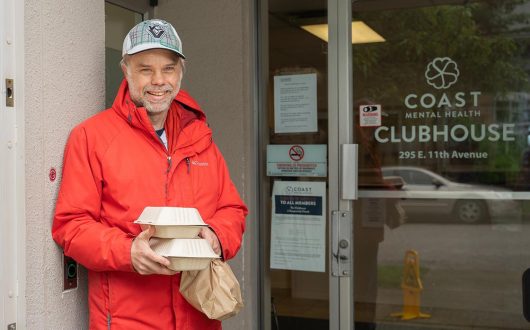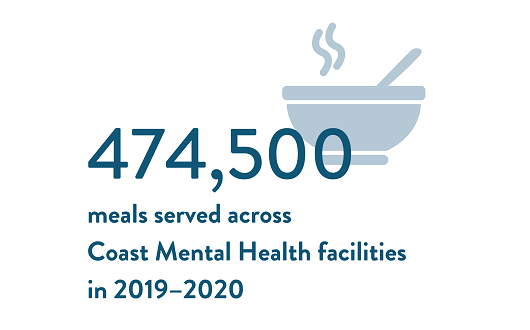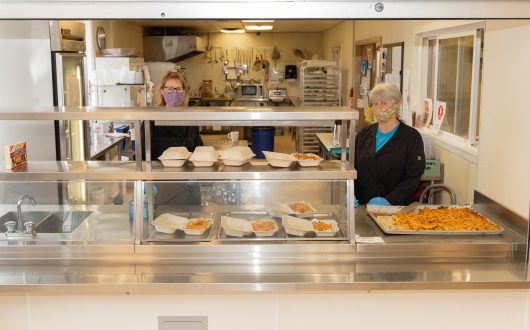
Here’s how you can help:
- Read our 5 recommendations
- Use your voice and pledge your support
- Organize your own fundraising events to support our mission
- Donate today to one of our causes
- Volunteer with us
- Partner with us on a solution in mental health

Over the long weekend many of us enjoyed our Thanksgiving celebrations. Although adapted for the Covid-era, we still managed to give thanks and enjoy a holiday meal. Thanksgiving is a timely reminder to express our gratitude, but once the last of the pumpkin pie is gone, it’s easy to lose sight of our appreciation.
Having a roof over our head and a hot meal to enjoy is something that not everyone can enjoy for Thanksgiving. For many vulnerable populations in B.C., living with food insecurity means not knowing where your next meal will come from on any given day of the year.
Food has an impact on every part of our daily lives. It’s the baseline human need not only for survival, but to feel connected to your community and a sense of belonging.
Across cultures, food is a way to bring togetherness to the table and celebrate our shared humanity. Often, vulnerable populations aren’t afforded this type of compassion. Individuals living with mental illness who experience food insecurity are at a higher risk of relapse, or a sudden decline in health.

Stephen collects a daily meal from the Coast Mental Health Clubhouse. Without food programs such as this, people living with mental illness could go hungry.
Hunger and malnutrition can have a significant adverse effect on an individual’s mental health. Many people living in poverty or on a fixed income can’t afford a healthy meal. When these individuals experience food scarcity, nutrition is the last consideration.

According to Program Manager Cynthia Leighton, without the focus on health, a lot of food that people have access to are high in sugar, carbs and empty calories which can often exacerbate other health issues.
The effects of a poor diet compound problems vulnerable populations already face like weakened immune systems, diabetes, along with vitamin deficiencies which opens them up to other infectious diseases.
The negative symptoms that are associated with food insecurity lower peoples’ ability to cope with life on the street and may make it more difficult for them to access support services.
“It’s a big picture thing. People who don’t have money may also struggle with a substance use disorder or a mental health issue and pushed to the side. And every time they get pushed to the side, it makes their capacity to take care of themselves, that much harder,” says Leighton.
We need to work to integrate support services into every part of the community. To properly address food insecurity, we need to make sure that there is enough access to healthy food and that marginalized populations are no longer pushed to the periphery.

Food is served at many of the homes that Coast Mental Health provides as well at at the Resource Centre and Clubhouse.
This year, more than ever, we need to support individuals living with mental illness. We need your help to advocate for vital food programs and support services that help those living with mental illness. With the upcoming election looming, we have an unprecedented opportunity to call on the government to #fundmentalhealth.
We need to come together and advocate for food security for people living with mental illness.
